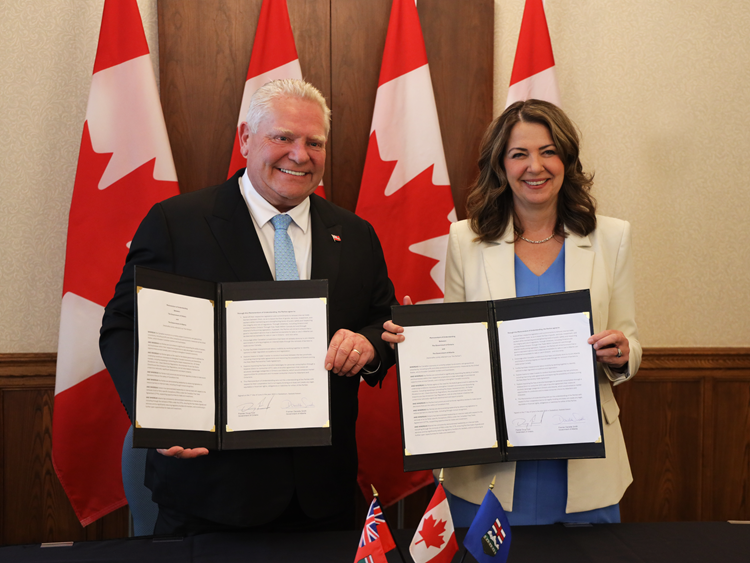Alberta Premier Danielle Smith and Ontario Premier Doug Ford have signed an agreement aimed at removing trade barriers and simplifying labour mobility between the two provinces.
The memorandum of understanding (MOU) was signed during a meeting of Canada’s First Ministers held in Saskatoon from June 1 to June 2. It targets improved flow of goods and services and easier cross-border recognition for regulated professions, notably skilled trades. It will also allow direct-to-consumer sales of alcohol produced in each province.
The agreement raises the possibility of Ontario joining the existing New West Partnership Trade Agreement (NWPTA), which already includes Alberta, British Columbia, Saskatchewan and Manitoba. The NWPTA has facilitated trade and labour movement among its member provinces for 15 years.
“Together, Alberta and Ontario are taking a big step toward a more open, competitive, and united economy,” said Smith. “This agreement is about getting results, making it easier for people to work, do business, and grow across provincial lines.”
Ford emphasized the economic importance of increased cooperation amid external economic threats.
“With President Trump threatening our economy, there’s never been a more important time to boost internal trade and cooperation between provinces,” said Ford. “By agreements like this and working together, we’re helping Canada unlock up to $200 billion in economic potential.”
The MOU also commits Alberta and Ontario to advocate for federal actions to improve Canada’s economic conditions. Both provinces have called on Ottawa to reconsider regulations such as the Impact Assessment Act, Oil Tanker Moratorium Act, Clean Electricity Regulations, and proposed greenhouse gas emission caps for the oil and gas sector.
Alberta’s track record on internal trade
Alberta has previously led efforts to dismantle internal trade barriers, notably by reducing exceptions within the Canada Free Trade Agreement (CFTA). In 2019, the province removed 21 of its original 27 exceptions, significantly expanding market access in government tenders, liquor, energy, and forest products.
Currently, Alberta maintains eight exceptions, mostly related to essential regulatory and safety issues, including cannabis management and hazardous materials handling.





